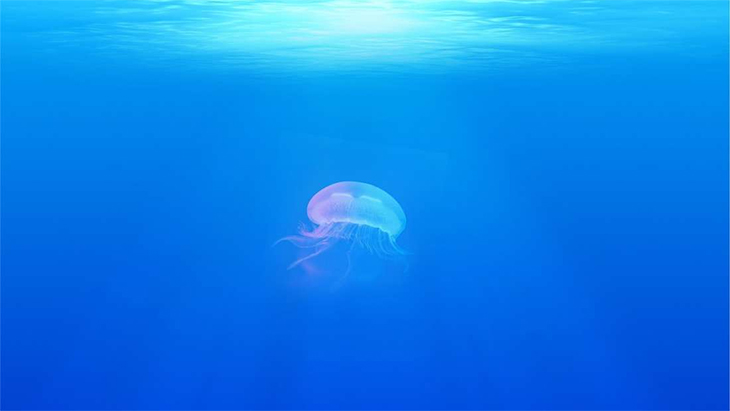By: Josh Davis/IFL Science Oxygen is just as important to life below the water as it is on land. The impact of low oxygen concentrations (anoxia) in the oceans can be disastrous, even contributing to mass extinctions in the past. Now, a team of researchers have modeled the effects of anoxic events and found that it takes the oceans at least a million years to recover from these events.
Focusing on the anoxic event that occurred toward the end of the Jurassic, known as the Toarcian Oceanic Anoxic Event, researchers documented the dramatic shift in oxygen concentrations and found that it was characterized by disturbances in the global carbon cycle. They found that anoxic events in the oceans are only terminated after gradual increases in atmospheric oxygen, which get reabsorbed back into the water.
Their results, published in Nature Communications, provide a better understanding of the dire and wide-reaching consequences of low levels of oxygen in the oceans, including effects you might not expect.
As the levels of the gas in the water drops, more organic carbon becomes buried in sediment on the ocean floor. While the warmer regions of the ocean may remain productive, bacteria and other creatures that might ordinarily consume it cannot survive in the anoxic conditions. This, in turn, drives an increase in atmospheric oxygen levels.
In response to this, the higher concentrations of oxygen in the air means there is an increase in the frequency of wildfires on the land. The researchers found that deposits of charcoal increased within the million years after the onset of the Toarcian Event, which occurred some 183 million years ago. This showed that wildfires raged on for at least 800,000 years.
The burning of plants on land over hundreds of thousands of years may have also played a role in bringing the anoxia to an end. Plants on land help free up nutrients in the rocks, which eventually make their way into the oceans and help organisms grow. If the fires prevented plants from growing, fewer minerals would have ended up in the oceans, meaning fewer creatures would have survived. This means oxygen levels in the water would have steadily built up.
The worrying thing is that we are currently on the brink of another global anoxic event. As climate change progresses, the chemistry of the ocean is altering, driving down the concentrations of the gas dissolved in the waters. Over the past 50 years, it is thought that the oxygen concentrations in the oceans have dropped by 2 percent. While this might not sound like a lot, it could be enough to start the formation of dead zones.




